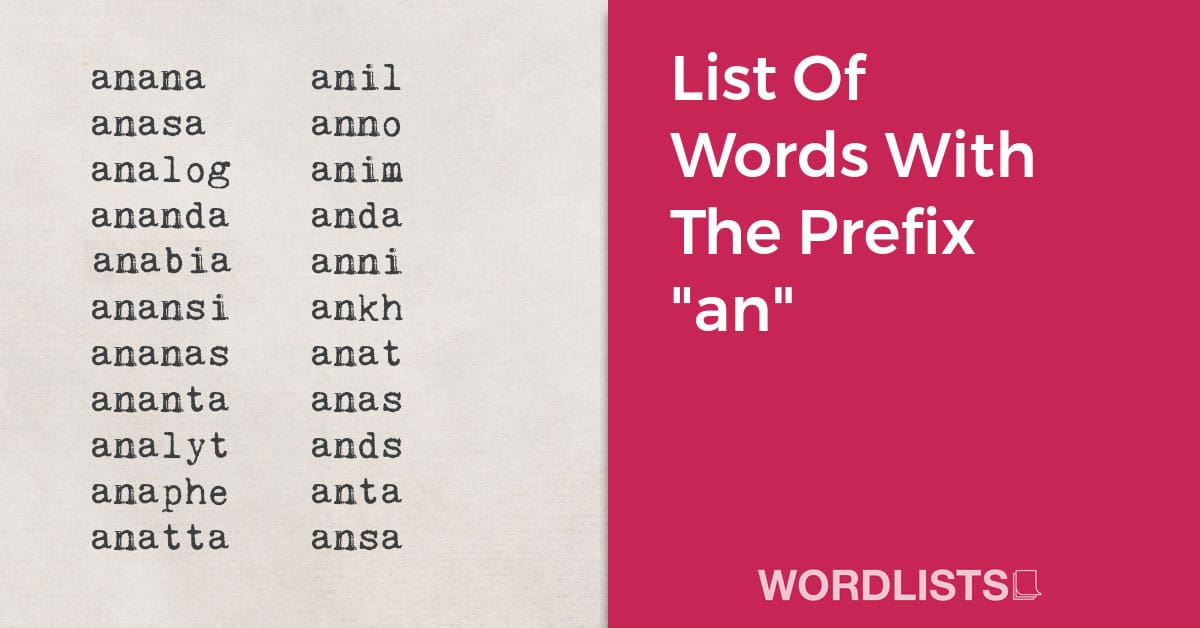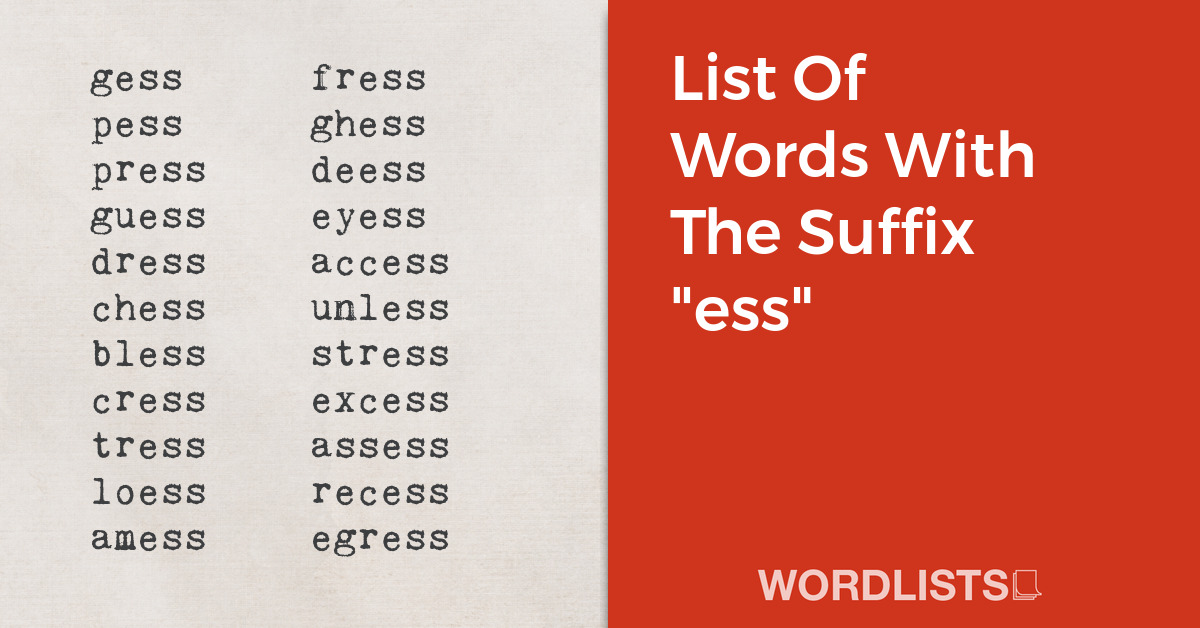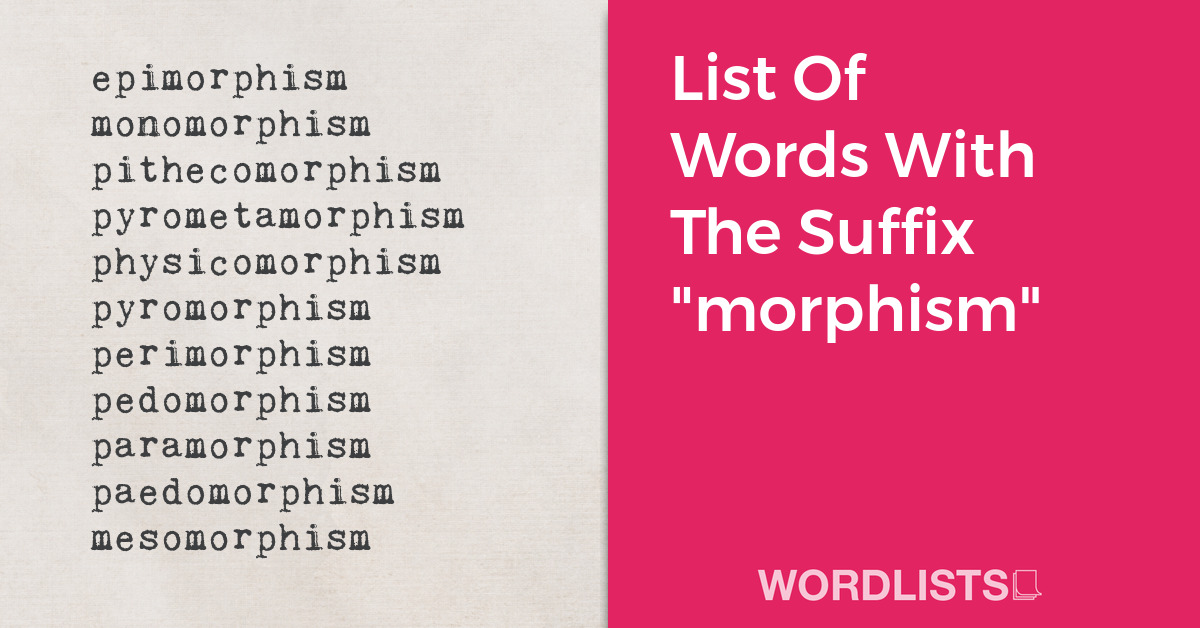Prefixes are essential linguistic elements that can greatly expand our understanding of words in the English language. By attaching these meaningful units to the beginning of base words, we can modify their meanings and create new words altogether.
With an extensive repertoire of prefixes, we gain the ability to decipher unfamiliar terms and construct words that accurately convey our thoughts and ideas.

Subscribe to our mailing list to receive FREE exclusive content and offers!
In this comprehensive guide, we will explore 100 commonly used English word prefixes, along with their meanings. From the familiar to the more obscure, these prefixes serve as building blocks for a vast array of words. Understanding their meanings empowers us to navigate the intricacies of the English language with confidence and clarity.
Throughout this guide, we will delve into prefixes such as “un-” which denotes negation, “re-” indicating repetition or reversal, and “pre-” suggesting something that comes before. We will also encounter prefixes like “bi-” representing two, “tri-” signifying three, and “multi-” denoting many. Each of these prefixes, and many others, holds a unique linguistic significance that contributes to the richness of English vocabulary.
A-
The prefix a means “not” or “without”, as in “amoral” (without morals) or “apolitical” (not political).
Ab-
The prefix ab means “away from,” as in “abscond” (to go away secretly) or “abstain” (to stay away from something).
Ad-
The prefix ad means “toward” or “in the direction of,” as in “advance” or “adhere.”
Al-
Al is a prefix meaning “all” or “every”, as in “alleviate” (to make something less severe) and “allocate” (to assign something for a particular purpose).
Ambi-
Ambi means “both” or “around”, as in the words “ambidextrous” (able to use both hands equally well) and “ambience” (the atmosphere or environment around something).
An-
An is a prefix meaning “not” or “without”, as in “anarchy” (without government) or “anonymous” (not named).
Ana-
Ana is a prefix meaning “up, back, or again”, as in analyze (to break down and study) or anagram (a word or phrase made by rearranging the letters of another word or phrase).
Ante-
The prefix ante means “before” and is used to indicate a prior event or condition, as in “ante-mortem” (before death) or “ante-bellum” (before war).
Anti-
The prefix anti means “against” or “opposite of,” as in “antipathy” (a feeling of strong dislike) or “antithesis” (the direct opposite of something).
Apo-
Apo is a prefix meaning “away from,” as in “apostasy” (a turning away from one’s faith) or “apocalypse” (a revelation of hidden knowledge).
Arch-
Arch means “chief or principal” and can be used in words such as “archbishop” (a leader of a church) and “archenemy”.
Auto-
The prefix auto means self or same, and can be used to describe a process that is self-initiated or self-sustaining, such as “autonomous” or “autopilot”.
Bi-
Bi is a prefix meaning “two or twice,” as in “bifurcate” (to divide into two branches) or “bilateral” (having two sides).
Bio-
The prefix bio means “life” and can be used to describe anything related to living organisms, such as biochemistry, biodiversity, and biotechnology.
Ca-
The prefix ca means “around” or “about” and can be used in phrases such as “caress” or “caution”.
Cata-
The prefix cata means “down” or “through,” as in “cataclysm” or “cataract,” respectively.
Circum-
The prefix circum means around or about, as in the words circumscribe, circumnavigate, and circumspect.
Co-
The prefix co means “together,” as in the words “coexist” and “cooperate,” which mean to exist or work together.
Com-
Com is a prefix meaning “together” or “with,” as in “commemorate,” meaning to honor together, or “compose,” meaning to put together.
Con-
Con means “together” or “with” and can be used to indicate a close connection between two things, e.g. “conjoined twins” or “concordance”.
Contra-
Contra means “against” or “opposite of,” as in “contradict” or “contravene.”
Counter-
A counter prefix is used to indicate the opposite or reverse of an action, such as “counteract” or “counterbalance”.
De-
De means “to remove or undo,” as in the words “defrost” or “decontaminate.”
Deca-
Deca is a prefix meaning “ten”, and is often used to denote a multiple of 10, such as decameter (10 meters) or decaliter (10 liters).
Demi-
Demi means “half” and can be used to describe something that is incomplete or partial, such as a demi-glace sauce or a demi-circle.
Di-
Di is a prefix meaning “two” or “twice,” often used to indicate a doubling or a division into two parts, as in “dichotomy” or “dipole.”
Dia-
The prefix dia means “through” or “across,” as in the words “dialogue,” meaning a conversation between two or more people, or “diagonal,” meaning a line that crosses another line at an angle.
Dis-
Dis means to reverse or undo an action, as in “disengage” or “disassemble”.
Ec-
The prefix ec means “out of” and can be used in words such as “ecstasy” (out of one’s mind) or “eclipse”.
Ecto-
Ecto means “outside,” and is used to describe things that are located on the outer surface of an organism, such as ectoderm or ectoparasites.
En-
En is a prefix meaning to make or cause something to be, often used with verbs such as “enable” or “enforce.” For example, “Enabling access to the website will help users get the information they need” and “Enforcing the new policy will ensure everyone follows the rules.”
Endo-
Endo is a prefix meaning “within” or “inner,” as in endocardium (the inner lining of the heart) or endocytosis (the process of a cell taking in material from its environment).
Epi-
The prefix epi means “upon, over, or near,” and is often used to describe something that is on top of or adjacent to something else, such as in the words “epidermis” (the layer of skin on top of the dermis) or “epicenter” (the point on the Earth’s surface directly above the focus of an earthquake).
Equi-
Equi means “equal” or “same”, as in the words “equidistant” (having the same distance between two points) or “equilibrium” (a state of balance).
Eu-
Eu is a prefix meaning “good, well, or true”, and can be used in words such as eulogize, euphony, and eutopia.
Ex-
Ex means “former,” as in ex-president (a former president) or ex-boyfriend (a former boyfriend).
Exo-
Exo means “outside of” or “beyond,” as in the words exoskeleton (an outer skeleton of an animal) or exoplanet (a planet beyond our solar system).
Extra-
Extra means “beyond what is usual or necessary,” as in the phrases “extracurricular activities” and “extra credit.”
Fore-
Fore- means “before” or “in front of,” and can be used in a sentence such as, “The forerunner of the race was the first to cross the finish line.”
Hemi-
Hemi means “half” and can be used in sentences such as “A hemisphere is half of a sphere” or “A hemicylinder is half of a cylinder”.
Hexa-
Hexa means six, as in the hexagon shape which has six sides, or hexadecimal, a number system with base 16.
Homo-
Homo is a prefix meaning “same” or “similar”, as in homogeneous (having the same composition throughout) or homonym (a word with the same pronunciation as another but with a different meaning).
Hyper-
Hyper is a prefix meaning “over” or “above,” as in “hyperactive” (overactive) or “hypercritical” (overly critical).
Hypo-
The prefix hypo means “under, below, or beneath,” and can be used in a sentence such as, “The hypothermia caused her body temperature to drop below normal.”
Il-
Il is a prefix meaning “not” or “without”, as in the words “illogical” or “illiterate”.
Im-
The prefix im means “not” or “opposite of”, as in “immoral” or “impossible”.
In-
In prefix means “not” or “opposite of” and can be used in a sentence such as “he was inattentive during the lecture” or “she was inactive during the meeting”.
Infra-
Infra prefix means “beneath” or “below”, as in “infrastructure” (the systems and resources beneath the surface that support a society) or “infrasonic” (sounds that are below the range of human hearing).
Inter-
Inter prefix means between or among, as in the words interconnect (connect between or among) or interdependent (dependent between or among).
Intra-
Intra prefix means within or inside, as in the examples “intracellular” (within a cell) and “intramural” (within an institution).
Ir-
The prefix ir means “not” or “without”, as in “irresponsible” (not responsible) or “irrelevant” (not relevant).
Iso-
Iso means “equal” or “same”, as in the words “isometric” (having equal measure) or “isolation” (separation from others).
Macro-
Macro prefix means “large-scale” or “on a large scale,” and can be used in a sentence such as, “The macroeconomic policies of the government have a big impact on the economy.”
Mal-
The prefix mal means “bad” or “wrong,” as in “malpractice” or “malcontent.”
Mega-
Mega prefix means “very large” and can be used to describe something that is much bigger than average, such as “a megastore” or “a megacorporation.”
Meta-
Meta prefix means “beyond” or “transcending”, and can be used to refer to a concept which is an abstraction of other concepts, such as in the phrase “meta-analysis”, which is an analysis of multiple analyses.
Micro-
The prefix micro means small or very small, as in the words “microscope” or “microchip”.
Mid-
Mid prefix means “in the middle” and can be used to describe something that is in the middle of two other things, such as “mid-November” or “mid-Atlantic”.
Mis-
Mis is a prefix meaning “wrong, badly, or not,” as in misbehave (to behave badly) or misjudge (to judge wrongly).
Mono-
Mono prefix means “one” and can be used to describe a single item, such as a monorail, monochrome, or monologue.
Multi-
Multi prefix means “many” and can be used to describe a variety of things, such as multicolored, multilingual, and multimedia.
Neo-
Neo prefix means “new” or “recently created”, and can be used to describe something that has been recently created or changed, such as a “neo-classical style of architecture” or a “neo-futuristic approach to design”.
Non-
Non prefix means “not” or “opposite of”, as in non-traditional or non-conformist.
Octo-
Octo prefix means “eight” and can be used in phrases such as “octopus” or “octagonal”.
Omni-
Omni prefix means “all” or “every”, and can be used in sentences such as “Omnipresent technology has changed the way we communicate” or “Omnivorous animals can eat both plants and animals”.
Ortho-
Ortho prefix means “straight, correct, or true,” as in the words orthodontics (straightening teeth) and orthodoxy (correct belief).
Over-
Over prefix means above or higher than something else, as in “overachiever” or “overabundance”.
Pan-
Pan prefix means “all” or “across”, as in pan-European (relating to all of Europe) or pan-African (relating to all of Africa).
Para-
Para is a prefix meaning “beside, beyond, or apart from,” and is often used to form words such as “paradox,” “parallel,” and “paradigm.”
Pel-
Pel is a prefix meaning ‘around, completely’, as in the words ‘pellet’ and ‘pellucid’, which mean ‘a small round object’ and ‘completely transparent’, respectively.
Penta-
A penta prefix means five, as in pentagon (a five-sided shape) or pentathlon (an athletic competition with five events).
Peri-
Peri prefix means ‘around’ or ‘surrounding’, as in the words perimeter, periscope, and perigee.
Philo-
Philo prefix means “love” and can be used in words such as a “philosopher” or someone who loves knowledge, or such as a “philanthropist” (someone who loves mankind).
Photo-
Photo is a prefix meaning “light”, and can be used to describe anything that has to do with light, such as photography, photovoltaics, or phototherapy.
Poly-
The poly prefix means “many” and can be used in words such as polygon (a shape with many sides) or polyglot (a person who speaks many languages).
Post-
Post prefix means “after”, and can be used to describe something that occurs after a certain event, such as “post-war” or “post-graduation”.
Pre-
Pre which means “before,” appears in many English language words, like “prefix”or “prearrange”.
Pro-
Pro primarily means “forward” but can also mean “for.” Some words that the prefix pro- gave rise to are promise, pro, and promote.
Proto-
Proto is a prefix meaning “original, primitive, or first,” as in the words “protocol” (an original plan or set of rules) or “prototype” (an original model from which others are copied).
Pseudo-
Pseudo is a prefix meaning “false, pretended, or spurious,” as in the words pseudoscience or pseudointellectual.
Quad-
A quad prefix means “four”, and can be used to describe a group of four people, objects, or ideas, such as a quadrant, a quadrangle, or a quadcopter.
Re-
The re prefix means “again” or “back,” and can be used to form words such as “revisit,” “redo,” and “reconsider.”
Retro-
A retro prefix means “backward” or “in the past,” and can be used to describe something that is inspired by the past, such as “retrospection” (action of looking back) or “retroactive”.
Semi-
Semi prefix means “partially” or “half” and can be used in a sentence such as, “The semi-circle was only half of the full circle.”
Sub-
Sub prefix means “under” or “below”, and can be used to describe something that is lower in rank or status, or to indicate a part of something, as in “sub-basement” or “sub-committee”.
Super-
The prefix super means “above, beyond, or greater than,” as in “superhuman strength” or “superior quality.”
Sym-
Sym prefix means together or with, as in the words symphony, sympathy, and symposium.
Syn-
The syn prefix is a Greek prefix meaning “together, with, same” and is used to denote similarity or connection, as in synonym (a word with the same meaning as another) and synchronize (to cause to occur at the same time).
Tele-
Tele is a prefix meaning “distant” or “far away”, as in the words “telecommunication” (the transmission of information over a distance) or “television” (the transmission of images over a distance).
Trans-
Trans prefix means “across” or “beyond” and can be used to describe the movement of something from one place to another, such as in the words “transport” or “transcontinental”.
Tri-
The tri prefix means “three” and can be used to describe any object or concept that consists of three parts, such as a triangle, tricycle, or trimester.
Ultra-
An ultra prefix means “beyond” or “extreme,” and can be used to describe something that is exceptionally great or beyond what is expected, such as “ultra-luxurious” or “ultra-successful.”
Un-
Un prefix means “not” or “the opposite of”, as in “unhappy” (not happy) or “unlock” (the opposite of lock).
Under-
An under prefix means below or beneath, as in “underachiever” or “understatement”.
Uni-
The prefix uni means “one” or “having one only,” as in the words unilateral, uniform, and unify.
Vice-
The vice prefix means taking the place or rank of another person or meaning a deputy.
Xeno-
Xeno prefix means “strange or foreign,” as in “xenophobia” or “xenodochy” (reception of strangers, hospitality).
Xero-
Xero prefix means “dry” as in “xerography” or “xerophyte” (a plant that can adapt to living in an environment with very little water).
Yotta-
Yotta is a prefix used to denote a quantity of 10^24, such as in the term “yottabyte” which is a unit of digital storage equal to 1,000,000,000,000,000,000,000,000,000 bytes.
Zetta-
A zetta prefix is used to denote a factor of 10 to the power of 21, and is commonly used in scientific notation to represent very large numbers, such as 1 zettabyte (1021 bytes).







